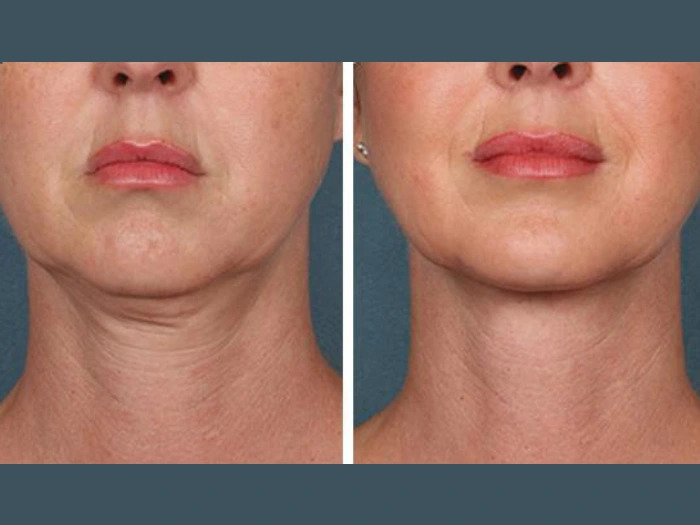Acne — one of the most common skin problems — affects millions of people worldwide, regardless of age or gender. For some, it’s a mild annoyance, but for others, it can cause deep emotional distress, scarring, and low self-esteem. Over-the-counter creams, cleansers, and antibiotics may help in mild cases, but when acne becomes persistent or severe, dermatologists often turn to one powerful solution — Isotretinoin.
Commonly known by its brand names such as Accutane or Isotroin, Isotretinoin has transformed the skincare industry as the most effective treatment for stubborn pimples and acne that don’t respond to other medications. This article explores what Isotretinoin is, how it works, its benefits, side effects, and essential tips for using it safely.
Understanding Isotretinoin
Isotretinoin is a derivative of vitamin A (retinoid), originally developed to treat severe cystic acne — the kind that forms painful, deep lumps under the skin. Over time, it has also been proven effective against other forms of persistent acne, such as nodular or inflammatory acne.
Unlike topical creams or antibiotics that only manage acne temporarily, Isotretinoin addresses the root causes of acne, offering long-term remission for most users. In many cases, patients experience clear skin even years after completing a single course of treatment.
How Does Isotretinoin Work?
To understand how Isotretinoin clears acne, you must first know what causes it. Acne forms when hair follicles become clogged with oil (sebum), dead skin cells, and bacteria. Hormonal changes, genetics, and poor skincare habits can all contribute to excess oil production and clogged pores.
Isotretinoin works through multiple mechanisms, attacking acne at every level:
-
Reduces Sebum (Oil) Production:
Isotretinoin shrinks the oil glands in the skin, drastically reducing the amount of sebum produced. With less oil, pores are less likely to clog — the primary cause of pimples. -
Prevents Clogged Pores:
The medication helps normalize the shedding of skin cells, preventing blockages inside the hair follicles. This means fewer blackheads, whiteheads, and cystic pimples. -
Kills Acne-Causing Bacteria:
The reduced oil environment is less favorable for Cutibacterium acnes (the bacteria responsible for acne) to grow, lowering bacterial count naturally. -
Reduces Inflammation:
Isotretinoin also has anti-inflammatory properties, which help calm redness, swelling, and irritation associated with acne lesions.
In short, Isotretinoin provides a comprehensive acne-fighting solution by tackling all four major acne triggers — excess oil, clogged pores, bacteria, and inflammation.
Who Should Consider Isotretinoin?
Isotretinoin is usually prescribed when other acne treatments — like antibiotics, hormonal therapy, or topical retinoids — fail to deliver lasting results. Dermatologists may recommend it for:
-
Severe cystic or nodular acne
-
Acne that causes scarring
-
Acne resistant to other treatments
-
Acne causing emotional distress
-
Excessively oily skin prone to frequent breakouts
While Isotretinoin is powerful, it is not always the first line of treatment. Dermatologists carefully evaluate a patient’s medical history, lifestyle, and acne severity before prescribing it.
The Journey to Clear Skin: What to Expect
1. The Starting Phase
Treatment typically begins with a low dose, which may increase over time. Dermatologists adjust the dosage based on body weight and tolerance. During the first few weeks, some people may notice their acne worsening — this is a common “purging” phase where deep blockages rise to the surface before healing begins.
2. Visible Improvement
After 6 to 8 weeks, most users notice visible improvement — fewer breakouts, smoother skin texture, and reduced oiliness. By the 3rd or 4th month, the difference is often dramatic.
3. Long-Lasting Results
A typical Isotretinoin course lasts between 4 to 6 months, depending on the severity of acne. Remarkably, about 85% of patients experience long-term remission after completing one course. For others, a short maintenance course may be prescribed later.
Benefits of Using Isotretinoin
-
Permanent Acne Reduction:
Isotretinoin doesn’t just control acne; it can eliminate it for years, or even permanently, in many users. -
Prevents Scarring:
By stopping new pimples from forming it helps prevent deep, permanent acne scars. -
Improves Skin Texture:
As inflammation decreases, skin becomes smoother, more even-toned, and radiant. -
Boosts Confidence:
Clearer skin often leads to improved self-esteem, mental health, and social confidence. -
Reduces Oiliness:
The reduction in sebum production also means less greasy skin and smaller-looking pores.
Possible Side Effects and Precautions
Although Isotretinoin is highly effective, it’s also a potent medication that must be used under strict medical supervision. Understanding potential side effects helps users manage them safely.
Common Side Effects:
-
Dry skin, lips, and eyes
-
Mild itching or redness
-
Nosebleeds (from dryness)
-
Increased sensitivity to sunlight
-
Temporary acne flare-up
These effects are manageable with proper hydration, lip balm, and moisturizers.
Serious Side Effects (Rare but Important):
-
Elevated liver enzymes or cholesterol levels
-
Joint or muscle pain
-
Mood changes
-
Vision disturbances
-
Birth defects (if taken during pregnancy)
Important Safety Guidelines
1. Never Use Without Prescription
Isotretinoin must always be prescribed by a qualified dermatologist after medical evaluation. Self-medication can lead to dangerous side effects.
2. Avoid During Pregnancy
Women must undergo pregnancy tests before, during, and after treatment, as Isotretinoin can cause severe birth defects. Reliable contraception is mandatory during treatment.
3. Regular Blood Tests
Your doctor will schedule routine tests to monitor liver function, cholesterol, and triglycerides to ensure your body tolerates the medication well.
4. Stay Hydrated
Dryness is a common side effect. Drink plenty of water and use gentle, fragrance-free moisturizers and lip balms daily.
5. Protect Skin from the Sun
Use sunscreen with at least SPF 30, as Isotretinoin increases your skin’s sensitivity to UV rays.
6. Avoid Harsh Treatments
Avoid waxing, laser treatments, or chemical peels during and shortly after treatment to prevent skin irritation or scarring.
Diet and Lifestyle Tips During Isotretinoin Treatment
-
Eat a Balanced Diet:
Include fruits, vegetables, and omega-3-rich foods to support skin healing. -
Avoid Alcohol:
Alcohol can strain the liver, especially while on Isotretinoin, so it’s best to limit or avoid it. -
Stay Consistent:
Take the medicine at the same time daily, preferably with food to improve absorption. -
Keep Stress Levels Low:
Stress can trigger breakouts. Engage in relaxation activities like yoga or meditation. -
Gentle Skincare Routine:
Use mild cleansers and avoid exfoliating scrubs. Stick to dermatologist-approved products.
Life After Isotretinoin
Once the treatment course ends, most people enjoy smooth, acne-free skin for months or years. To maintain results:
-
Continue using gentle, non-comedogenic skincare.
-
Avoid picking or squeezing pimples.
-
Maintain a healthy lifestyle and good hygiene.
-
Visit your dermatologist for periodic check-ups.
If acne returns mildly, your doctor may suggest topical retinoids or a short second course.
Myths About Isotretinoin — Debunked
Myth 1: It’s Too Dangerous to Use
While Isotretinoin is strong, it’s perfectly safe when prescribed and monitored by a qualified dermatologist. Most side effects are temporary and manageable.
Myth 2: It Causes Permanent Dryness
Dryness disappears after treatment ends. Proper hydration and skincare prevent long-term issues.
Myth 3: Acne Will Come Back Immediately
Many people enjoy long-term remission; if acne returns, it’s often milder and manageable.
Myth 4: You Can’t Use Makeup
You can wear makeup — just make sure it’s oil-free, non-comedogenic, and gentle on your skin.
When to See a Dermatologist
If your acne is persistent, painful, or leaving scars despite months of treatment, it’s time to consult a dermatologist. They can determine whether Isotretinoin is right for you and customize your dosage for optimal results.
Remember — acne is not just a cosmetic concern; it’s a skin condition that deserves professional care.
Conclusion
Isotretinoin stands as the gold standard in acne treatment, offering hope to those who’ve struggled with persistent pimples, oily skin, and scars. By targeting acne at its root causes — oil production, bacteria, inflammation, and clogged pores — it delivers clear, smooth, and glowing skin that lasts.
Though it requires careful monitoring, the results speak for themselves: renewed confidence, healthier skin, and a pimple-free future. If you’re ready to say goodbye to breakouts and hello to lasting clarity, talk to your dermatologist about Isotretinoin — the best prescription for clear, pimple-free skin.

